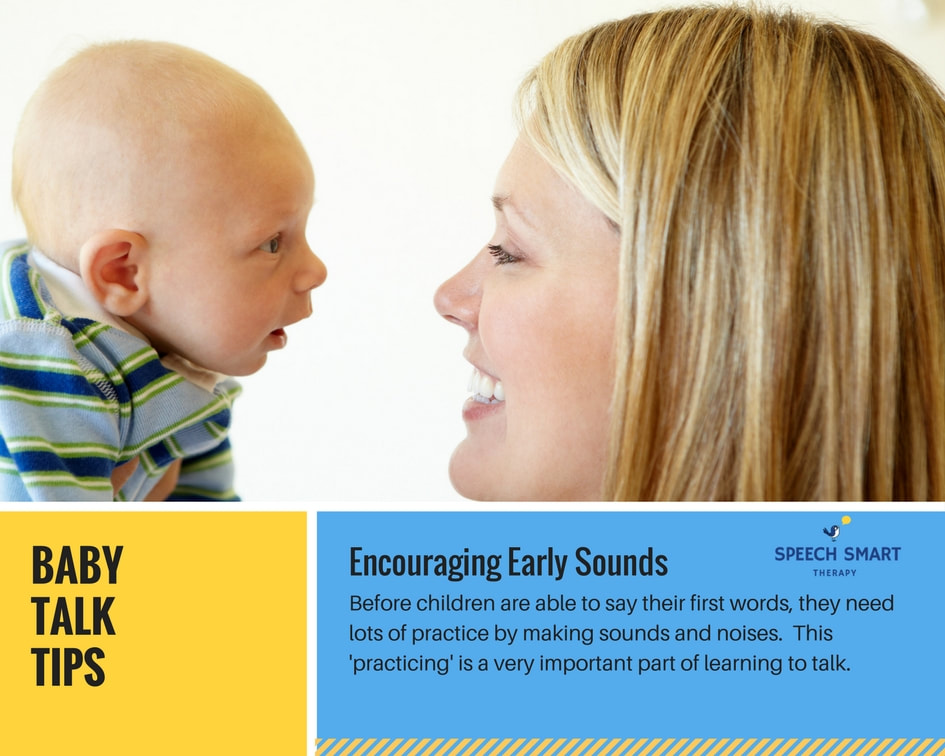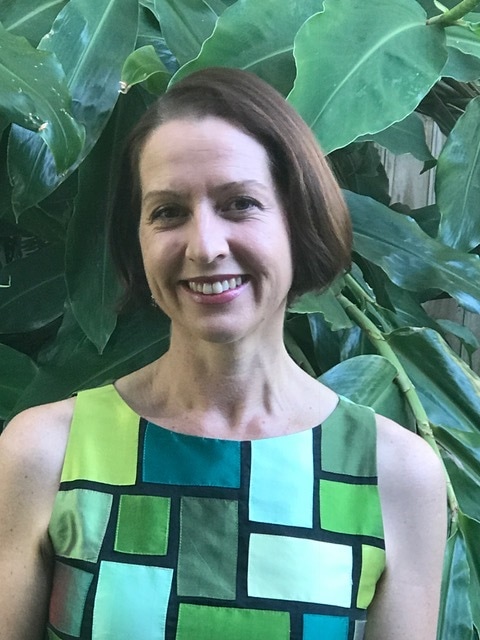Your baby may only make a few sounds to start with, but as he/she gets older he/she is able to make more and more sounds. From as young as 3 months babies start to take turns in vocalising (making voice sounds) and make two or more speech sounds. From six months an average child can make four or more distinct sounds including vowels and consonants (e.g. p, m, d). Initially they are likely to repeat sounds when babbling (e.g. bababa, dada) followed by varying their babble and playing with sounds more (e.g. badaga, gagada). Below are tips for helping develop your babies skills in 'practicing' making sounds and learning to talk. Imitate Sounds Your Baby MakesPlayfully imitate the sounds your baby has just produced or say the word they may be trying to use (do this immediately after your baby has said the sound). Encourage Your Child to Make More SoundsPlay games and activities that encourage lots of sounds. Listen to your baby and take note of what activities he/she likes to make sounds to and what time of day he/she is most talkative. For example, bath time, meal time or just after he/she wakes up may be great times for making sounds. Exciting toys (e.g. pop up or spinning toys) or social games (e.g. peek-a-boo) can be great for encouraging your child to make sounds. Sitting in front of a large mirror and making silly faces and noises together is another activity that encourages many babies to make sounds. Take Turns Making SoundsYour baby will learn to take turns in making sounds when you copy a sound that your baby has already made. Reward your baby if he/she imitates the sound back (e.g. smiling, cuddling, clapping). Repeat the sound again to help encourage your baby to take turns to produce a sound. Pause and wait for them to take another turn. If they do, again reward them with a smile or cuddle. Introduce New SoundsOnce your baby is able to take simple turns making sounds they know, you can start to encourage your baby to copy new sounds. It may be easiest to start with simple turn taking using a sound they know and then introduce a new sound (e.g. 'baba' (sound your child can can say) and then 'dada' (a sound your child doesn't know). Keep new sounds simple (e.g. p, t, d, n, m, h, g, k, ar, oo, ee). Imitating 'Play' SoundsOnce your child is starting to make a variety of sounds and sound sequences, start to use lots of sounds during 'play'. 'Play' sounds are often easier to imitate than real words e.g. 'Mmmm' when eating something yummy, 'woof' 'woof' when looking at a dog together, 'wee' when going on a swing or down a slide, 'oh oh' when something drops, ' Grrr' when pretending to be a lion, 'brmm, brmm' when pushing a toy car, 'pop' when popping bubbles. Use 'play' sounds lots when doing something that your child really likes. For example, everybody knew my little niece loved dogs because she'd get so excited every time she saw one. Her mum would say "woof woof", whenever she pointed at a dog excitedly. Not surprisingly this was one of her very first words! Written By:
Sarah Creagh Speech Pathologist Speech Smart Therapy |
Author - Sarah CreaghI'm a speech pathologist with a passion for working in partnership with parents to support children to reach their maximum potential. Archives
September 2018
Categories
All
|
||||||




 RSS Feed
RSS Feed

